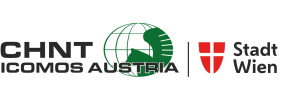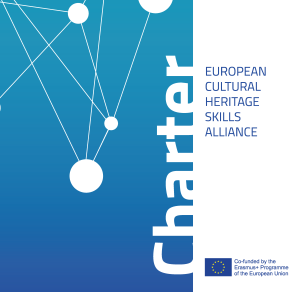Cultural Heritage Actions to Refine Training, Education and Roles (CHARTER)
New CHARTER Alliance will unite and professionalise the European cultural heritage sector
The European Cultural Heritage Skills Alliance CHARTER brings together the expertise of some of the leading organisations in cultural heritage to ensure a long-lasting and durable sector. Over four years, the Erasmus+ funded project will professionalise the sector and further demonstrate its contribution to sustainable and thriving societies and economies. The project stems from the lack of statistical recognition of the cultural heritage (CH) sector. Without this, the economic impact of the sector goes unnoticed and consequently, the sector’s potential to strengthen European cultural identities and social cohesion cannot be realised. The initiative Cultural Heritage Actions to Refine Training, Education and Roles (CHARTER) will combine newly gathered knowledge of sector specific competencies and skills with already existing findings and recommendations to streamline a novel strategic approach to sectoral cooperation.
What to expect from CHARTER?
The Alliance will map the needs of the CH sector to identify skills shortages and mismatches in order to develop fitting training programmes for already active CH professionals. The Alliance will also support adaptability within the educational system, with the aim that curricula and learning goals reflect the current and coming needs of the sector. Upskilling of core and transversal skills will be made easy and exchange, capacity building and movement within Europe will be encouraged. All efforts combined will professionalise the sector and CHARTER will showcase that CH is integral in achieving social, economic and environmental sustainability.
Attending to the needs and challenges of the sector
CHARTER will see to the entire European CH sector and the different levels found within it. By coming together, the sector as a whole will become stronger and more resilient.
The absence of classification and codification leaves CH recruitment and procurement without competency benchmarks. There is no structure for continuing professional development to aid lifelong learning, nor a system for identifying and addressing emerging skills gaps. Many professionals do not have their full range of competencies recognised, which hinders professional mobility. A recognised ‘age cliff’ and trend towards academisation of society is reducing entrant numbers to cultural heritage occupations. Digitisation, increased use of technology and born-digital cultural heritage are creating challenges for an ageing and poorly resourced sector.
By mapping education through formal, informal and lifelong learning pathways, systems of recognition, validation and accreditation for heritage skills will be created. CHARTER will clarify roles and missions in regards to cultural heritage so that career pathways are visible for educators and training providers to tailor and benchmark curriculum content and delivery methods.
Digitisation, 3D modelling, virtual and augmented reality complement the traditional skills essential to care for cultural heritage. In line with the EU priority on advancing cooperation on digitising cultural heritage, the mapping of skills and creation of training modules will include core and transversal digitisation and digital preservation skills.
© press release (29.04.2021)
“CHARTER identifies skills shortages and mismatches in the cultural heritage sector to bridge the gap between education and occupational systems to ensure the sector’s viability and illustrate its contribution to social, economic and environmental sustainability in Europe.”
Further Information
Click for download the brochure
Connect with CHARTER:
Twitter:
@AllianceCharter
Facebook:
@CHARTER.Alliance.EU
Instagram:
@charter.alliance.eu
LinkedIn:
www.linkedin.com/company/charter-alliance-eu




